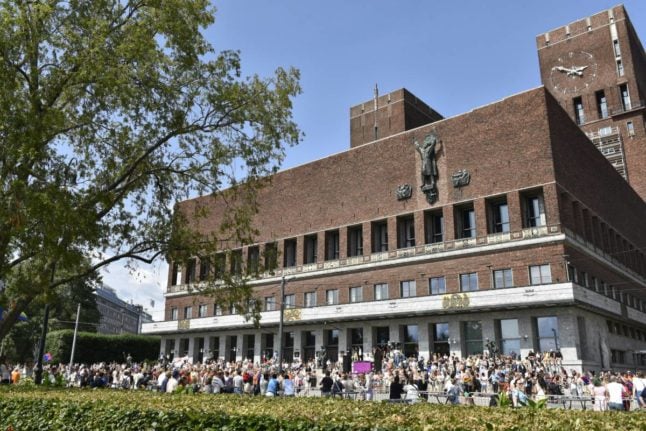Whether you’re a recent graduate, a seasoned professional seeking new opportunities, or an international citizen aiming to integrate into the Norwegian workforce, having the right resources at your disposal is essential.
After all, every job market is unique in its own way, and Norway is no exception due to the country’s distinct cultural and professional landscape.
READ MORE: How many foreigners are in Norway’s top one percent of earners?
Therefore, the Local’s curated list of essential articles to support your job-hunting journey in Norway is a great place to deepen your understanding of the Norwegian workplace and find out how to make the most of career opportunities in this Scandinavian country.
What you need to know about Norway’s job market
Despite Norway’s reputation for high wages, good working conditions, and a solid work-life balance, factors such as gender and nationality are connected to wage disparities between Norwegians and foreigners, particularly in certain professional fields.
READ ALSO: Is there a gender wage gap in Norway?
People relocating to Norway for work often face lower wages than their Norwegian counterparts. For the most up-to-date figures, check out The Local’s overview of the issue.
Furthermore, there is also a dark side to working in Norway. Rogue firms who actively try to bend the rules can exploit workers – especially international citizens – in several ways. Here’s what you need to watch out for in such situations.
READ MORE: How foreign workers can be exploited in the Norwegian labour market
On a related note, newcomers to Norway should also be aware of social dumping and “lufting”.
While the former encompasses various illegal work practices that lead to poor pay and working conditions for foreign workers, the latter is a legal practice that exploits loopholes to avoid providing permanent positions or benefits to certain workers.
Considering these issues, it’s always a good idea to read up on Norway’s union system and the worker protection it provides.
READ MORE: What foreign residents in Norway should know about workers’ unions
Wages in Norway: What to expect
The allure of high wages attracts many workers to Norway each year (despite the recent debate on whether Norway is still an attractive country for foreign workers). This isn’t surprising, considering the average monthly salary in Norway is 48,750 kroner before tax, according to Statistics Norway (SSB).
However, many people are surprised to learn that there is no official general minimum wage in the country and that wages tend to be set through negotiations between trade unions and individual employers or employer organisations. Furthermore, non-union members need to negotiate their own wages.
To find out how minimum wages – and associated negotiations – in the country work, have a look at our breakdown of the issue which includes a list of the industries with a minimum hourly wage, here.
READ MORE: Could a long period of stagnant real wages in Norway be about to end?

Most workers in Norway are automatically entitled to overtime if they work over their hours. Here’s what you need to know about the overtime system in Norway.
If you want to know more about how much workers in Norway’s highest-paying sectors take home each month or how much money you need to earn for a good life in the country, we’ve got you covered, too.
Are you worried about Norway’s reputation for having high taxes? In this comprehensive overview, we examine the actual tax burden.
Looking for a job: The essentials
Job searching in Norway demands a strategic approach. With high wages and solid job security, Norway attracts numerous foreign workers annually, many of whom end up settling in the country long-term.
Whether you’ve just arrived, are transitioning between jobs, or are seeking new challenges, several essential steps can streamline your job hunt.
In this deep-dive article, we’ve gathered all these steps, from registering with the Norwegian Labour and Welfare Administration (NAV) and the police to finding suitable job listings.
Once administrative matters are addressed, it will be time to polish your CV and conduct thorough research. Adapting your CV to Norwegian standards (which we cover in more detail here), including language proficiency and cultural nuances, can significantly enhance your appeal to potential employers.
It is also advisable to leverage online resources and use templates tailored to Norwegian job applications.
The Local has also compiled a list of six tips to help you improve your odds of landing a job, which can be helpful, especially if your occupation is in low demand.
Furthermore, volunteering serves as a gateway to integration in Norway (and, at times, job opportunities), and nearly two-thirds of the population actively contributes their time to various causes each year. Here’s where you can discover a volunteering opportunity that aligns with your interests and goals.
If you fall into the category of people wishing to move to Norway for work requiring a residence permit for skilled workers, you’ll need to read up on what happens if your qualifications don’t align with your job offer.
The Local Norway also has a page featuring jobs and opportunities across Norway, which you can consult here.



 Please whitelist us to continue reading.
Please whitelist us to continue reading.
Member comments